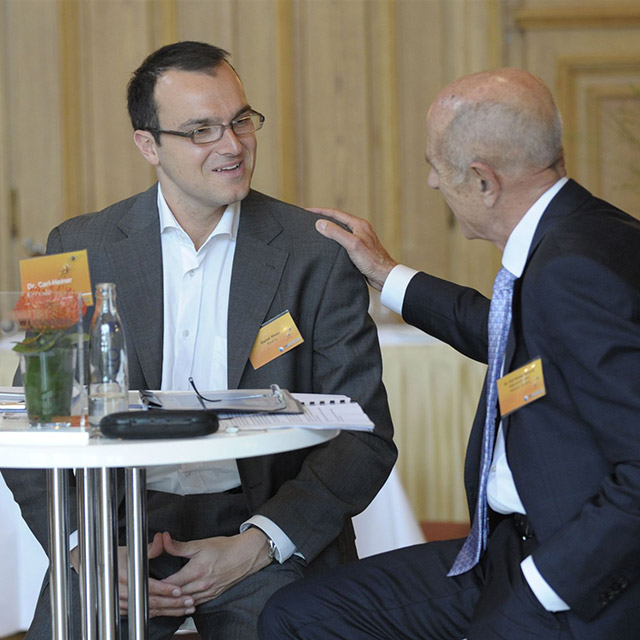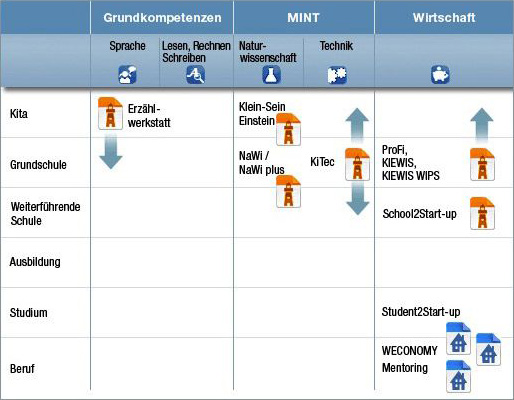Companies for Germany
“For those for whom education is too expensive, you want to try stupidity.” With this statement, Dr. Jürgen Hambrecht, BASF former chief executive, provoked a commentary in the Economy newspaper “Handelsblatt”.
The subject of education is a heartfelt concern for the doctoral chemist. This puts him in good company. In 2005 he founded, with eight German entrepreneurs, “Knowledge Factory—Companies for Germany.” By now, more than 100 companies have joined. The aim of the project: Preventing the shortage of skilled workers in science and technology in Germany and supporting young entrepreneurs. In this manner, the industrial location Germany will be strengthened in the long run.
All projects of the Knowledge Factory have one common theme: no immediate “return on investment” is foreseeable. Project organizers and member companies believe in profitability through long-term volunteering in the educational and economic areas. Well-known companies such as Bosch, BASF, Continental, and TRUMPF, as well as medium-sized companies like Malerwerkstätten (Painting Workshops), Heinrich Schmid, Storopack, and Harting and smaller institutions such as the Sparkasse Südliche Weinstrasse and Autohaus Kuhn & Witte support the Knowledge Factory with money and manpower. About 400 employees of this corporate network work for the goals of the Knowledge Factory. Some companies exempted their employees entirely to work for this project.
The Knowledge Factory focuses on two areas in particular:
1. Life resembling childhood education: During their daycare and schooling times, children and young people are supposed to encounter concepts which are in accordance with the standard curriculum, but less theoretical. The aim is to enthuse those children from an early age for subjects such as natural-scientific knowledge in the hope that the children will later opt for careers in the technical and scientific field.
2. Support for entrepreneurs and start-ups: According to the Knowledge Factory, Germany relies heavily on innovative enterprises. Support of their work through this initiative will lead to success stories tomorrow
The Knowledge Factory has initiated eleven Germany-wide, long-term projects since its beginning. The range is wide; from kindergarten to start-up, you can find everything there.
So far, the associates of the Knowledge Factory have reached 550,000 students at 2,300 schools. For this purpose, they invested, to date, 15 million Euros. The funding priorities are science, technology, and the economy, which is very well received. According to the Knowledge Factory, a school teacher once stated in utter amazement, “Can you even imagine? The students don’t even want to go for their breaks anymore.”
Besides working in educational institutions, 80 start-up companies have been promoted. One of the actions, for example, is a mentoring program. A senior employee knowledgeable in the economy accompanies the start-up for up to three years. Other start-up companies are invited to network meetings. There are already top managers or experts from member companies of the Knowledge Factory waiting to develop business plans together with the founders and, therefore, to open new doors.
We like this project because it shows that companies are willing to invest in the assistance of other people in the long run. Their approach is to inspire young people through new experiences and to allow a knowledge transfer from the seniors to the juniors. This is an encouraging approach which carries over into the participating companies.


